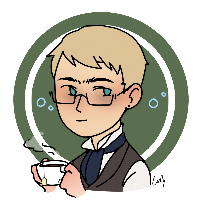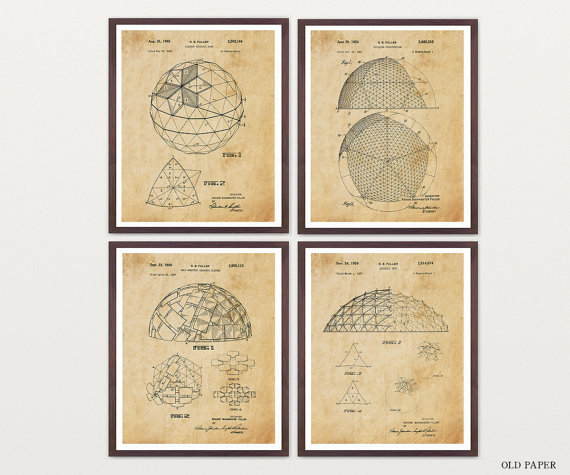Question Help with the magic system
6 years 6 months ago #1
by CrazyMinh
Posts:
758
Gender:
Male
Birthdate:
Unknown
You can find my stories at Fanfiction.net here .
You can also check out my fanfiction guest riffs at Library of the Dammed
- CrazyMinh
-
 Topic Author
Topic Author
So, I've started working on this again, and I decided: 'What the hell! I might as well add a magic system to get my brain in gear!'
Thing is...not sure how to mechanically design it.
So, I was initially thinking something along the lines of the current D&D spell system, with spell slots and prepared spells. Then I realised that that doesn't fit the way magic works in Whateley, and thus I decided to remove the spell slots and add a essence system. Then I remembered cantrips, and thus am undecided on whether I should have cantrips consume essence or...
...look, i could ramble on about all the problems here, but that won't fix anything. What I do need is some help conceptualising a magic system that is mechanically sound and also fits the lore of the WU. I'll figure out the mechanics of essence gen and spell prep later on, but right now I need a system for casting spells, a Whateley Spell List 101, and some ideas from the community on how to do this.
Thing is...not sure how to mechanically design it.
So, I was initially thinking something along the lines of the current D&D spell system, with spell slots and prepared spells. Then I realised that that doesn't fit the way magic works in Whateley, and thus I decided to remove the spell slots and add a essence system. Then I remembered cantrips, and thus am undecided on whether I should have cantrips consume essence or...
...look, i could ramble on about all the problems here, but that won't fix anything. What I do need is some help conceptualising a magic system that is mechanically sound and also fits the lore of the WU. I'll figure out the mechanics of essence gen and spell prep later on, but right now I need a system for casting spells, a Whateley Spell List 101, and some ideas from the community on how to do this.
You can find my stories at Fanfiction.net here .
You can also check out my fanfiction guest riffs at Library of the Dammed
6 years 6 months ago - 6 years 6 months ago #2
by Malady
Posts:
3893
Gender:
Unknown
Birthdate:
Unknown
- Malady
-

Whateley does teach a standard Magical Tradition, the Western / Sidhe-based Tradition, IIRC...
In order to codify the stuff right, you might need to start from a very basic, low-level, no specials, mage.
And then lay out just the Western System, and leave the Eastern, Sidhe, Mythos, Shamanistic, etc. In other splatbooks.
----
Not even sure how much The Final Trump has... 'Cause it brings in Roses as a Base Magical Unit, and Miasma / Faex...
Then I guess Roses don't matter unless you're doing magical contests between mages??
----
We do know that there are some standard spells, at least by Gen2... Light, and Wards / Circles, maybe all / most Whateley Mages have a grasp of Tarot...
Spell Cards...
How to make a Essence Battery...
Also, Whateley mages share some spells, like the wind spell,
whateleyacademy.net/index.php/9-original...d-escape-from-it-all
----
Also, somehow, Clover knows a "static electricity" spell, that Kayda didn't know, perhaps just because it wasn't part of her curriculum yet...
In order to codify the stuff right, you might need to start from a very basic, low-level, no specials, mage.
And then lay out just the Western System, and leave the Eastern, Sidhe, Mythos, Shamanistic, etc. In other splatbooks.
----
Not even sure how much The Final Trump has... 'Cause it brings in Roses as a Base Magical Unit, and Miasma / Faex...
Then I guess Roses don't matter unless you're doing magical contests between mages??
----
We do know that there are some standard spells, at least by Gen2... Light, and Wards / Circles, maybe all / most Whateley Mages have a grasp of Tarot...
Spell Cards...
How to make a Essence Battery...
Also, Whateley mages share some spells, like the wind spell,
whateleyacademy.net/index.php/9-original...d-escape-from-it-all
“No! Not sheesh! The word you want is Zenth,” Beltane rolled out from under a descending blade, and kicked a squirrel into the path of the encroaching zombie, “You muffed the last word of the spell, as in: An-cha-ra-Zenth!”
----
Also, somehow, Clover knows a "static electricity" spell, that Kayda didn't know, perhaps just because it wasn't part of her curriculum yet...
Last Edit: 6 years 6 months ago by Malady.
6 years 6 months ago #3
by Astrodragon
Posts:
1998
Gender:
Unknown
Birthdate:
Unknown
I love watching their innocent little faces smiling happily as they trip gaily down the garden path, before finding the pit with the rusty spikes.
- Astrodragon
-

Actually Whateley doesn't only teach Western-style magic, but the students need a solid grounding in one systrem before they start trying to get complicated.
I love watching their innocent little faces smiling happily as they trip gaily down the garden path, before finding the pit with the rusty spikes.
6 years 6 months ago #4
by null0trooper
Posts:
3032
Gender:
Male
Birthdate:
19 Oct 1964
In some ways, low- to mid- level WU magic is similar to Shadowrun 4, extended by "Street Magic". A mage can only pull so much Essence through their Well and into a spell effect without hurting themself (Magic/Wiz Trait vs. Drain). Having stored Essence helps (SR5 reagents, power foci), as does sacrifice.
The leverage on that power can be greatly increased through:
- patience (It's all an extended test, but taking extra time or care is negating botches),
- using mnemonics (gestures, phrases, etc.: centering metamagic),
- taking advantage of aspected domains/tainted Essence (background count) or making them exploitable ( geomancy or cleansing metamagic )
- having experience (Spellcasting, Ritual spellcasting skill)
- having help (partners, spirits, cults, etc.)
- enchanted tools (foci) help
- masking and shielding metamagics make a spell harder to counter
- initiation grades help
- having the right spell memorized or committed to paper is immensely helpful
Some of that leverage can go into improving likelihood of hitting a target, powering through physical or magical resistance, or speeding through a casting.
On the other hand:
- aspected domains/tainted Essence can also work against the caster
- counterspelling can be brutal
- having enemies that can screw with your concentration, your materials, your luck (spirit with accident power anyone?)
- learning new spells is rough and time-consuming
Having deities and Lovecraftian horrors running around transforms the Whateley Universe's mid- to upper- power curve from 'quadratic' to 'hyperbolic'.
So, when I describe Metro as having:
Magic 5
Willpower 3
Logic 6
Charisma 3 (+6 empathy when using certain gear)
Drain: 9 dice to beat target number, after Centering lowers it by Initiate level
Conjuring (group): 3
Spellcasting: 5
Counterspelling: 4
Ritual spellcasting: 1
Initiations: 5
Metamagics:
Masking
Extended Masking
Shielding
Channeling (Channeling a spirit raises Body, Agility, Reaction, and Strength by the spirit's Force.)
Centering
Mentor: Horned Man (+2 when dealing with guidance spirits, -1 Charisma)
Spirit Pact (55 pts spent, Force 4 Free Spirit)
Magical Group
R2 Power focus
R5 Sustaining (Health) focus
R5 Sustaining (Illusion) focus
Yes, that is 140,000 nuyen worth of shiny foci. Wrapping it all up in 30k worth of medium battle armor makes for a squishy wizard who actually didn't need to check if his parachute opened (It did, BTW)
... against skill and attribute levels that normally top out at 6, within that paradigm it's safe to say he's not exactly new to the finger-wiggling game. One of his best friends in the crew they 'ran with introduced him as "This is our mage. Please don't kill him, but he IS the reason we say 'geek the mage' first."
The setting also changes perspectives. In SR, being one of the top 50 mages working in Detroit or Seattle meant a person was getting somewhere - maybe to an early grave, but people know about you before ordering a complete dossier. In WU, being one of the top 50 mages working in Detroit or Seattle when there aren't even half that many in the town means ... not much.
Forum-posted ideas are freely adoptable.
WhatIF Stories: Buy the Book
Discussion Thread
- null0trooper
-

CrazyMinh wrote: So, I've started working on this again, and I decided: 'What the hell! I might as well add a magic system to get my brain in gear!'
In some ways, low- to mid- level WU magic is similar to Shadowrun 4, extended by "Street Magic". A mage can only pull so much Essence through their Well and into a spell effect without hurting themself (Magic/Wiz Trait vs. Drain). Having stored Essence helps (SR5 reagents, power foci), as does sacrifice.
The leverage on that power can be greatly increased through:
- patience (It's all an extended test, but taking extra time or care is negating botches),
- using mnemonics (gestures, phrases, etc.: centering metamagic),
- taking advantage of aspected domains/tainted Essence (background count) or making them exploitable ( geomancy or cleansing metamagic )
- having experience (Spellcasting, Ritual spellcasting skill)
- having help (partners, spirits, cults, etc.)
- enchanted tools (foci) help
- masking and shielding metamagics make a spell harder to counter
- initiation grades help
- having the right spell memorized or committed to paper is immensely helpful
Some of that leverage can go into improving likelihood of hitting a target, powering through physical or magical resistance, or speeding through a casting.
On the other hand:
- aspected domains/tainted Essence can also work against the caster
- counterspelling can be brutal
- having enemies that can screw with your concentration, your materials, your luck (spirit with accident power anyone?)
- learning new spells is rough and time-consuming
Having deities and Lovecraftian horrors running around transforms the Whateley Universe's mid- to upper- power curve from 'quadratic' to 'hyperbolic'.
So, when I describe Metro as having:
Stats wankery
[ Click to expand ]
[ Click to hide ]
Magic 5
Willpower 3
Logic 6
Charisma 3 (+6 empathy when using certain gear)
Drain: 9 dice to beat target number, after Centering lowers it by Initiate level
Conjuring (group): 3
Spellcasting: 5
Counterspelling: 4
Ritual spellcasting: 1
Initiations: 5
Metamagics:
Masking
Extended Masking
Shielding
Channeling (Channeling a spirit raises Body, Agility, Reaction, and Strength by the spirit's Force.)
Centering
Mentor: Horned Man (+2 when dealing with guidance spirits, -1 Charisma)
Spirit Pact (55 pts spent, Force 4 Free Spirit)
Magical Group
R2 Power focus
R5 Sustaining (Health) focus
R5 Sustaining (Illusion) focus
Yes, that is 140,000 nuyen worth of shiny foci. Wrapping it all up in 30k worth of medium battle armor makes for a squishy wizard who actually didn't need to check if his parachute opened (It did, BTW)
... against skill and attribute levels that normally top out at 6, within that paradigm it's safe to say he's not exactly new to the finger-wiggling game. One of his best friends in the crew they 'ran with introduced him as "This is our mage. Please don't kill him, but he IS the reason we say 'geek the mage' first."
The setting also changes perspectives. In SR, being one of the top 50 mages working in Detroit or Seattle meant a person was getting somewhere - maybe to an early grave, but people know about you before ordering a complete dossier. In WU, being one of the top 50 mages working in Detroit or Seattle when there aren't even half that many in the town means ... not much.
Forum-posted ideas are freely adoptable.
WhatIF Stories: Buy the Book
Discussion Thread
6 years 6 months ago #5
by Kristin Darken
Posts:
3898
Gender:
Unknown
Birthdate:
Unknown
Fate guard you and grant you a Light to brighten your Way.
- Kristin Darken
-

If I were building the WU magic system into a point based game, I would do the following:
Abilities:
Well Depth - absolute Essence cap, (Mage buy in - can't be a mage without a well.- could offer several different sizes as limitations to power scale, someone with lesser depth buy high draw could through lots of little fire bolts but only one or two big fireballs... and no world magick at all, solo... someone with a ginormous well and low draw could remake a virgin forest but then have to spend a decade recharging to cast common spells)
Well Draw - how much Essence the Well draws naturally over time. (this is the stat tied to the Wiz mutant rating - so, in theory, this would be where your 'big' pt costs have to go for mutants)
Skills
Well Discipline - how much of the Well can be filled before it begins to bleed off as 'wish fulfillment' or hobgoblins.
Essence manipulation - fundamental skill allowing Essence to be moved to and from the Mage's Well and into storage objects or ritual components.
Spell Crafting - the skill used to manipulate energy in a spell form to create a 'cast' effect
Ritual Casting - the skill used to combine spell energy to collectively form a spell effect.
Lore - Laws of Magick - the use of one of the laws of magick to reduce the difficulty level of a spell cast, solo or ritual format.
Perks
Mystic Contact - someone in the magical planes with whom the Mage exchanges knowledge and Essence, which has the benefit of bypassing the process of transforming Essence with a more 'efficient' exchange. This has the effect of reducing the base essence cost of any spell of that energy type (for example, Fire).
Esoteric Framework - knowledge of a magick system, current or historical which provides a basis for spell casting tradition, this reduces the difficulty of casting within the tradition and raises it when casting outside (or improvising). Some frameworks might have additional costs/benefits (mythos being an 'obvious' one).
Mage Senses - the ability to see (or otherwise sense) the energy patterns of active spells... and to a lesser degree, the natural or unnatural flows of Essence.
Spell Cores
Punch
Weapon
Bolt
Beam
Ball
Blast
Block
Shield
Wall
Barrier
See/Sense
Occlude
Travel
Boost
Unravel (Counterspell)
Spell Extensions / Energy types
Range
AoE
Power Scale
Tripwire
Delay
Seeking
IFF
Dmg Type/Scale: Fire, Cold, Force, Earth, Air, Water, Lightning, Death, Life, Light, Darkness, Shadow, Gravity, Time, Disease, Acid, Sonic
Obviously, finding the right point cost balance between all these is far more challenging than just the basic concept/layout. Even just deciding on the cost difference between say a 'common' elemental source like Fire... and Gravity... or Death... will take work. It shoudn't be too hard/costly to convert one level of Essence to Fire (about as much fire dmg as you can create with a match)... and even 4 or 5 levels of Fire to give you flame of a gas stove. But they'll have to buy the skill to hold the spell together too: say, Fire Beam... with level four Beam and level five Fire, your beam will be unraveling and losing effectiveness at its normal range and may just fail outright because its overpowered. When facing an enemy mage, you will want extra levels in your core spell, a level ten Bolt will hold together to deliver its payload of 5 Fire through a level 5 Unravel or Counterspell. The extra levels may also help you punch through mage armor, PK shells, and that sort of thing.
Basically, learning new spells isn't too hard or costly... but learning them to the degree that they can be combat effective, takes a lot more focus.
Abilities:
Well Depth - absolute Essence cap, (Mage buy in - can't be a mage without a well.- could offer several different sizes as limitations to power scale, someone with lesser depth buy high draw could through lots of little fire bolts but only one or two big fireballs... and no world magick at all, solo... someone with a ginormous well and low draw could remake a virgin forest but then have to spend a decade recharging to cast common spells)
Well Draw - how much Essence the Well draws naturally over time. (this is the stat tied to the Wiz mutant rating - so, in theory, this would be where your 'big' pt costs have to go for mutants)
Skills
Well Discipline - how much of the Well can be filled before it begins to bleed off as 'wish fulfillment' or hobgoblins.
Essence manipulation - fundamental skill allowing Essence to be moved to and from the Mage's Well and into storage objects or ritual components.
Spell Crafting - the skill used to manipulate energy in a spell form to create a 'cast' effect
Ritual Casting - the skill used to combine spell energy to collectively form a spell effect.
Lore - Laws of Magick - the use of one of the laws of magick to reduce the difficulty level of a spell cast, solo or ritual format.
Perks
Mystic Contact - someone in the magical planes with whom the Mage exchanges knowledge and Essence, which has the benefit of bypassing the process of transforming Essence with a more 'efficient' exchange. This has the effect of reducing the base essence cost of any spell of that energy type (for example, Fire).
Esoteric Framework - knowledge of a magick system, current or historical which provides a basis for spell casting tradition, this reduces the difficulty of casting within the tradition and raises it when casting outside (or improvising). Some frameworks might have additional costs/benefits (mythos being an 'obvious' one).
Mage Senses - the ability to see (or otherwise sense) the energy patterns of active spells... and to a lesser degree, the natural or unnatural flows of Essence.
Spell Cores
Punch
Weapon
Bolt
Beam
Ball
Blast
Block
Shield
Wall
Barrier
See/Sense
Occlude
Travel
Boost
Unravel (Counterspell)
Spell Extensions / Energy types
Range
AoE
Power Scale
Tripwire
Delay
Seeking
IFF
Dmg Type/Scale: Fire, Cold, Force, Earth, Air, Water, Lightning, Death, Life, Light, Darkness, Shadow, Gravity, Time, Disease, Acid, Sonic
Obviously, finding the right point cost balance between all these is far more challenging than just the basic concept/layout. Even just deciding on the cost difference between say a 'common' elemental source like Fire... and Gravity... or Death... will take work. It shoudn't be too hard/costly to convert one level of Essence to Fire (about as much fire dmg as you can create with a match)... and even 4 or 5 levels of Fire to give you flame of a gas stove. But they'll have to buy the skill to hold the spell together too: say, Fire Beam... with level four Beam and level five Fire, your beam will be unraveling and losing effectiveness at its normal range and may just fail outright because its overpowered. When facing an enemy mage, you will want extra levels in your core spell, a level ten Bolt will hold together to deliver its payload of 5 Fire through a level 5 Unravel or Counterspell. The extra levels may also help you punch through mage armor, PK shells, and that sort of thing.
Basically, learning new spells isn't too hard or costly... but learning them to the degree that they can be combat effective, takes a lot more focus.
Fate guard you and grant you a Light to brighten your Way.

